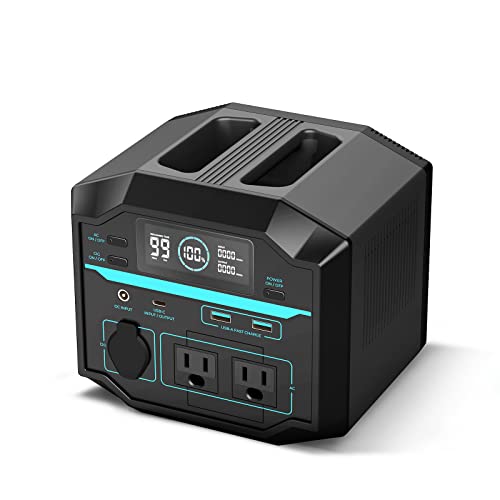
When it comes to choosing a portable power solution, two names you might frequently come across are the Renogy 200 and the EcoFlow Delta Pro. Both are designed to keep your devices running when the grid can’t, but they come with different specs, capabilities, and price points. In this detailed comparison, we’ll dig into the differences and similarities to help you make an informed decision based on your energy needs.
Design and Portability
Before we even get into the technicalities, the most obvious difference is physical. The Renogy 200 is a compact, brick-sized unit weighing in at just over 5 pounds, whereas the EcoFlow Delta Pro is a hefty 99-pound powerhouse. The Renogy is clearly made for on-the-go use, and its small form factor reflects that. The Delta Pro, while still portable, is designed for more stationary use, perhaps as a home backup or on a RV trip, and features a more rugged build.

Power and Performance
The meat of the matter is power. The Renogy 200 boasts a 222Wh battery capacity and a pure sine wave AC outlet capable of 200W continuous (400W surge), suited for smaller electronics like smartphones, cameras, and laptops. In contrast, the Delta Pro offers a whopping 3600Wh capacity and a 3600W total (7200W surge) AC output, which means it can handle heavy-duty appliances with ease.

Charging and Recharging
Renogy can be brought back up to 80% in just 1.5 hours, thanks to its ability to combine AC and USB-C charging. Considering its size, that’s impressive. The Delta Pro takes longer, but it’s also topping up a much larger battery. Additionally, the Delta Pro can charge via EV stations, expanding your options when off-grid.
Versatility and Expansion
Versatility is key for any portable power station. The Renogy 200 excels in its compatibility with solar panels, making it a perfect companion for eco-friendly adventurists. The Delta Pro, on the other hand, not only accepts additional battery modules to expand its capacity but also integrates with home circuits to act as a backup power source. This makes the Delta Pro a more versatile option for both portable and home backup use.
| Feature | Renogy 200 | EcoFlow Delta Pro |
|---|---|---|
| Weight | 5.3 lbs | 99 lbs |
| Dimensions | 7.48 x 6.10 x 6.99 inches | 25 x 11.2 x 16.4 inches |
| Battery Capacity | 222Wh | 3600Wh |
| AC Output | 200W continuous (400W surge) | 3600W total (7200W surge) |
| DC Output Options | USB-A, USB-C, Cigarette Lighter Port | USB-A, USB-A Fast Charge, USB-C, Car Power Output, DC5521 Output, Anderson Port |
| Charging Methods | AC Adapter, USB-C Port, Car Charging, Solar Panel | AC Charging Input, Solar Charging Input, Car Charging Input, EV Charging Stations |
| Battery Chemistry | Not specified | LFP (Lithium Iron Phosphate) |
| Cycle Life | Not specified | 6,500 cycles to 50% capacity, 3,500 cycles to 80% capacity |
| Compatibility | Smartphones, Laptops, Tablets, Cameras, Drones, CPAP machines | Home Backup, Outdoor Recreation, Professional Production |
| Warranty | 1 Year | Specific to retailer and terms of purchase |
Ultimately, choosing between Renogy 200 and EcoFlow Delta Pro depends on use case and necessity. The Renogy is perfect for casual users or solo adventurists needing a light and mobile power supply, while the Delta Pro is for those with larger power needs, like a family camping trip, professional usage, or even as a home backup system. Weigh your needs against these specs, and you’ll find the perfect portable power station for your needs.
